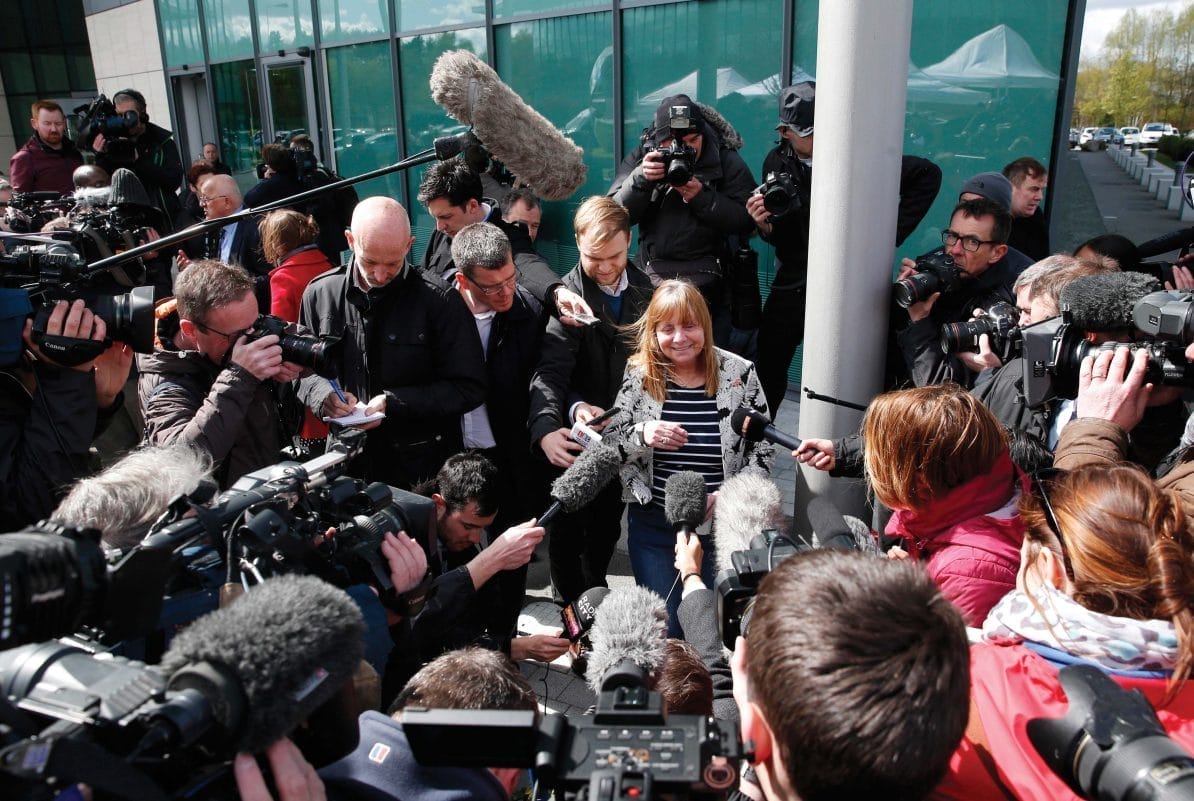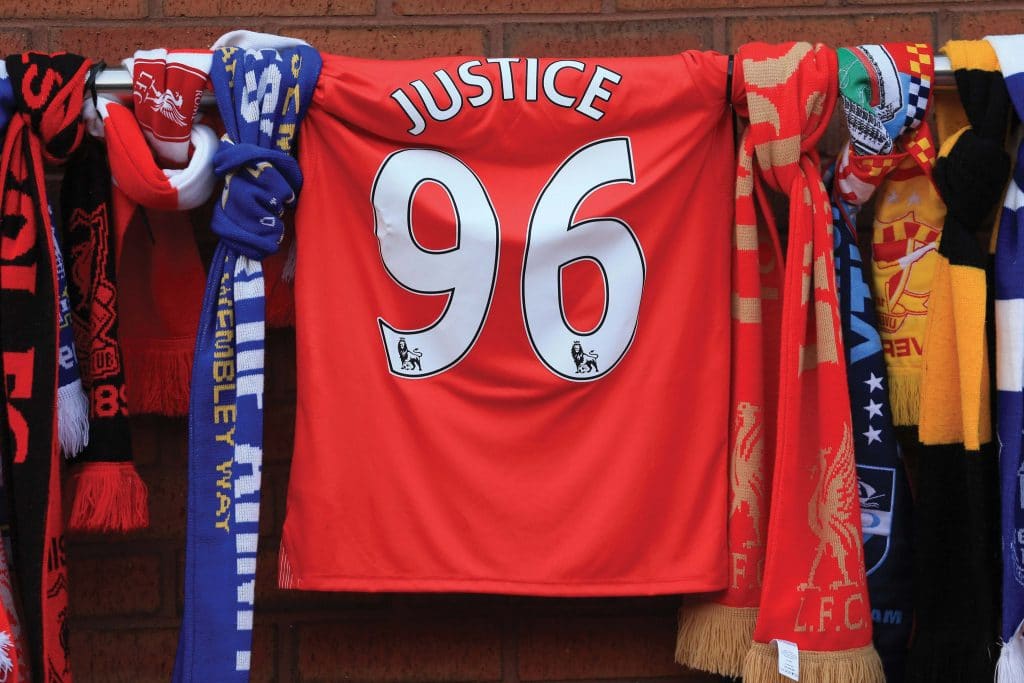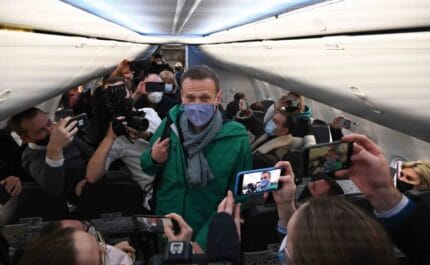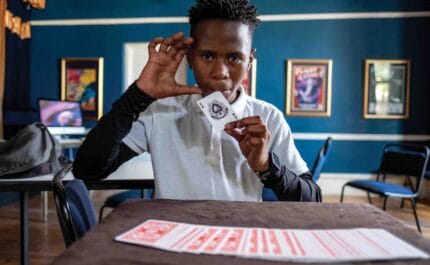Moment that mattered: The Hillsborough inquest jury delivers a verdict of unlawful killing
In April 2016, we interviewed Elkan Abrahamson, a lawyer fighting for justice for families of victims of the Hillsborough disaster, about a verdict his clients had waited a long time for

Margaret Aspinall, chair of the Hillsborough Families Support Group, speaks to the media outside the Hillsborough inquest in Warrington, UK. Photo: Owen Humphreys/PA/Press Association Images
26th April 2016 (Taken from: #23)
This article was published in Delayed Gratification in June 2016
When the jury delivered its verdict that the 96 people who lost their lives in the Hillsborough stadium disaster of 15th April 1989 were unlawfully killed, there was a palpable sense of shock in the room. My initial response was relief that it hadn’t all gone horribly wrong. The families’ initial response was, well, I wouldn’t exactly call it ‘euphoria’ because reality quickly kicks in and there’s the realisation that the verdict isn’t going to bring back loved ones. Indeed, for many family members it marked the beginning of a new grieving process.
I wasn’t sure what to expect that morning in Warrington, where the inquest was held. I was feeling slightly optimistic but, as the legal representative of victims’ families, it’s important to manage expectations. The last thing you want is the families to think it’s in the bag and then be disappointed and angry when it doesn’t go their way.
My first involvement in the Hillsborough case came in 1989 when I was approached by a victim’s family. It was such a big job representing one family that I directed them to an organisation acting on behalf of several families. That all went wrong [the original 1991 inquest ended in a verdict of accidental death], although at the time the South Yorkshire Police and West Midlands Police seemed to have so much power to subvert the legal process that I’m not sure any lawyers could have achieved the right result.
In the late 1990s, Anne Williams [a campaigner whose 15-year-old son Kevin died in the disaster, and who died from cancer in 2013] approached me. At that stage, it was about seeing what options could still be explored to keep the struggle for justice alive. Anne was lovely, a sensible and bright woman who was dedicated to and unintimidated by the fight for justice. Since then, Hillsborough has been part of my working life. For years it was a file I’d work on
every now and then to keep the fight going.
There wasn’t a breakthrough until 2009 when the Hillsborough Independent Panel was set up, which concluded that the police had campaigned to unfairly blame the fans and that the original verdict of accidental death was flawed. The High Court quashed the 1991 verdict and opened this new inquiry, which began in March 2014 and would become the longest case heard by a jury in British legal history.
A year before the inquest we started building a team. I headed up a group of three law firms – my own, Broudie Jackson Canter, represented 20 families of Hillsborough victims, and two other firms represented a family each. In total we were around 40 lawyers, working not just full-time over the three years but virtually 24/7. There was an enormous amount to do.
We can’t trust the judicial system to remedy the wrongs of society. The only people we can trust are the citizens”
The inquest was extremely difficult and stressful for everyone involved. Some family members wanted to be there every day, almost out of respect to their loved ones who died. The jurors gave up so much of their time. It was an unprecedented process, and everybody – jurors, lawyers, witnesses, families – was in tears at some point. As lawyers we can’t let the weight of the cause overwhelm us because then we can’t do our job, but everyone on our team put more emotional effort into this than anything we had ever worked on before. The key moment in the inquest was when David Duckenfield [the police officer in charge on the day of the match] admitted to his own barrister that his failure to close a tunnel entrance was the direct cause of the deaths. Initially he had lied by saying that fans stormed the entrance to get into the ground but, 26 years later, he admitted that the police had opened it. You could hear a pin drop when he finally told the truth.
At the first meeting we had with the families after the result, everybody was still finding it hard to deal with what had happened. The second meeting was more relaxed and there was a sense of a weight having been lifted from their shoulders. Some family members will want to draw a line under this now, but there are some who want to fight to change the culture in the police, and others want to see criminal prosecutions for what happened.
What has the inquest revealed about British justice? It’s shown that we can’t trust the judicial system to remedy the wrongs of society. The only people we can trust are the citizens. That’s what happened with Hillsborough – the flame of justice kept burning not because of the judges, the politicians or the police, but because citizens kept the argument alive through campaigns and support groups, because citizens went to Anfield and chanted “justice for the 96” at [then secretary of state for culture, media and sport] Andy Burnham, and because citizens on the jury achieved the right result.

“The flame of justice kept burning.” Photo: Mike Egerton/EMPICS Sport
The inquest also has shown how we need to change the cultures of large organisations such as the South Yorkshire Police. As kids we’re told that we can’t grass on our mates and that culture survives into our working lives, even when our colleagues have done something wrong. There was a culture of lying at the South Yorkshire Police, of protecting colleagues and senior officers, and a feeling of immunity that was evident after Orgreave [a 1984 incident in which the South Yorkshire Police violently confronted striking miners]. We’re now trying to introduce a duty of care across all public bodies and address this culture in our public life that says it’s acceptable to lie.
While the verdict of unlawful killing dominated the headlines, another inquest ruling, that the behaviour of fans played no part in the disaster, has helped give Liverpudlians back their sense of integrity and self-respect. I wasn’t surprised that the police brought up old allegations that the fans’ drunkenness caused the disaster. It still makes you angry to hear those lies. People have told me that they never felt comfortable talking about Hillsborough outside of Liverpool because of those lies, but after the fans’ exoneration they can discuss what happened at Hillsborough for the first time. This verdict was so important for the whole city of Liverpool, not just the families.
Slow Journalism in your inbox, plus infographics, offers and more: sign up for the free DG newsletter. Sign me up
Thanks for signing up.








